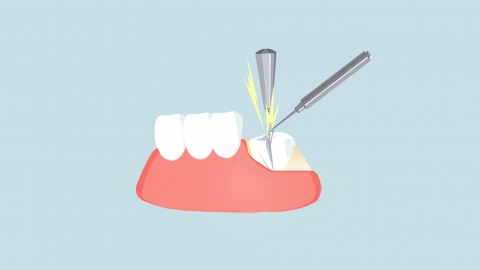Can the last tooth be extracted if it's decayed?
The last tooth has decayed. If it is a wisdom tooth and severely damaged, it usually needs to be extracted. However, if the last tooth is a normal molar, the possibility of preserving it should be evaluated first, and extraction may not be necessary.

If the last tooth is a wisdom tooth with severe decay—for example, if the tooth root is affected or recurrent inflammation occurs—and the wisdom tooth is poorly positioned and lacks normal chewing function, it can typically be removed after controlling the inflammation. After removal, no further restoration is generally needed, and oral function is minimally affected.
If the last tooth is a normal molar, preservation should still be prioritized even if decay is present. If the decay hasn't reached the root, root canal treatment can remove the necrotic tissue, followed by crown restoration to restore chewing function. If the decay is too severe to save the tooth, timely dental implant or denture restoration should be performed after extraction. Otherwise, adjacent teeth may tilt, leading to malocclusion and affecting normal eating.
In any case, once decay in the last tooth is detected, prompt examination at the dental department of a正规 hospital is essential. A professional dentist should determine the appropriate treatment plan. Do not decide on extraction by yourself, as this may delay proper treatment.




